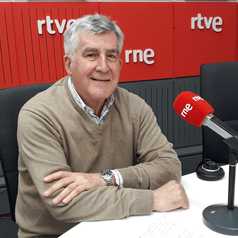
Manuel Peinado Lorca
Catedrático emérito. Director del Real Jardín Botánico de la Universidad de Alcalá, Universidad de Alcalá
MANUEL PEINADO LORCA (GRANADA, 1953)
https://orcid.org/0000-0003-3960-1092?lang=en
state=%7B%7D
Less ![]()
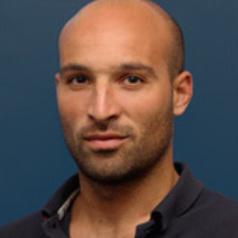
Manuel Varlet
Associate Professor in Cognitive Neuroscience, Western Sydney University
My research investigates the perceptual-motor processes underlying human performances and their changes across the lifespan, with expertise and pathologies, using behavioural, neuroimaging and brain stimulation methods. I am particularly interested in identifying the neural, informational and biomechanical mechanisms that support and enhance agent-environment and multi-agent coordination. I employ a range of motion capture, EEG, TMS, tDCS/tACS and virtual reality technologies to investigate these perceptual-motor processes, as well as a wide variety of contemporary linear and nonlinear time-series analysis and dynamical modelling techniques.
Less ![]()
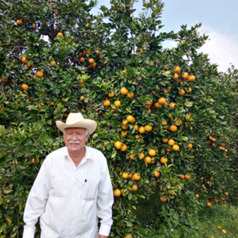
Manuel Ángel Gómez Cruz
Professor of agricultural policy, agroecology and agricultural economics, University of Chapingo
Professor of agricultural policy, agroecology and agricultural economics.
Agricultural engineer specializing in agricultural economics from the National School of Agriculture, he completed a doctorate in agricultural economics at the Humboldt University of Berlin, Germany. It has created several research centers including the Agriculture-Industry Research Program, the Center for Economic, Social and Technological Research on Agroindustry and World Agriculture (CIESTAAM), the Interdisciplinary Research Center for Comprehensive Rural Development (CIIDRI), and the doctorate in economic-agroindustrial problems, all of them at the Chapingo Autonomous University (UACh). He is founder of the Chapingo Organic Tianguis and the Mexican Network of Organic Tianguis and Markets. He is a researcher and coordinator of CIIDRI. He has more than 70 books as author and co-author, including:Citricultura orgánica con enfoque agroecológico: un modelo exitoso en el Norte de Veracruz (CEDRSSA, 2022), Guía agroecológica para la producción de naranja orgánica (UACh, 2021 y 2017), TLC y agricultura. funciona el experimento? (UACh, 1996).
ORCID: https://orcid.org/0000-0003-1410-3054
Researchgate: https://www.researchgate.net/profile/Manuel-Cruz-5
Less ![]()
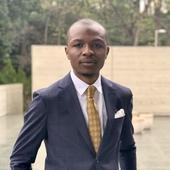
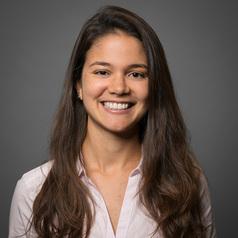
Manuela Dantas
Assistant Professor, Department of Accounting, California State University, Northridge
Manuela M. Dantas is an assistant professor at the David Nazarian College of Business and Economics of California State University, Northridge. Her research interests include financial accounting, ESG investing, greenwashing, behavioral finance, banking, and political science.
Less ![]()
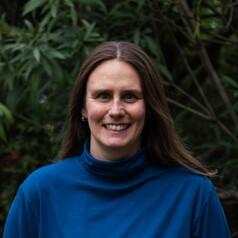
Manuela Jorg
Research Fellow & Lab Head in Medicinal Chemistry, Monash Institute of Pharmaceutical Sciences, Monash University
I started my career with an apprenticeship as a chemical lab technician at Ciba Specialty Chemicals. After a few years working in industry, I then obtained a Bachelors and Masters in Chemistry from the University of Applied Sciences Northwestern Switzerland and the University of Basel, respectively. While being interested and trained as an organic chemist, I have always been extremely passionate about the application of chemistry within the health sciences. Therefore, for my PhD I have specialised in Medicinal Chemistry as I want my research to contribute to improving health within our society. Currently. I am a Monash-Newcastle University research fellow and lab-head in the Medicinal Chemistry Theme at the Monash Institute of Pharmaceutical Sciences. My research interests are in the development of chemical probes and small molecule drugs.
Less ![]()
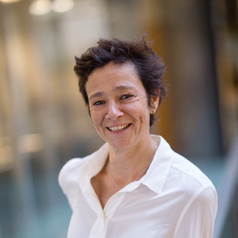
Manuelle Malot
Directrice Carrières et NewGen Talent Centre, EDHEC Business School
Manuelle Malot est Directrice Carrières et Prospective de l'EDHEC Business School depuis plus de 20 ans. Spécialiste de l'insertion professionnelle, elle réalise des bilans et diagnostics de compétences auprès de jeunes diplômés et cadres dirigeant, conseille et accompagne les entreprises dans leur politique de recrutement, de fidélisation et d’engagement.
Elle a fondé en 2012 le NewGen Talent Centre, centre d’expertise sur les motivations, comportements et compétences des nouvelles générations. Elle est l’expert des graduate programmes d’entreprise en France sur lesquels elle a publié plusieurs études, articles et ouvrages et anime des conférences en France et à l’étranger.
Manuelle Malot est diplômée de l'EDHEC et d’un 3ème cycle du CELSA Université Paris IV Sorbonne en sciences de l'information et de la communication. Elle contribue régulièrement en tant qu’expert carrière sur plusieurs supports.
Less ![]()
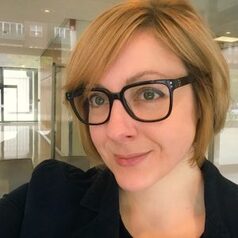
Mar Hicks
Associate Professor of Data Science, University of Virginia
Hicks does research on the history of computing, labor, technology, and queer science and technology studies. Their work studies how collective understandings of progress are defined by competing discourses of social value and economic productivity, and how technologies often hide regressive ideals while espousing "revolutionary" or "disruptive" goals. Their research investigates everything from how power and AI intersect, to the long history of transphobic algorithmic bias, to the connections between gender and technological change.
Hicks’s current work focuses on how gender and sexuality bring hidden technological dynamics to light, and how the experiences of women and LGBTQIA people change the core narratives of the history of computing in unexpected ways. They are currently working on a book about the gendered nature of digital infrastructure and the intersections between queerness and resistance in the history of digital computing. Hicks's multiple award-winning first book, Programmed Inequality (MIT Press, 2017), looks at how the British lost their early lead in computing by discarding women computer workers, and what this cautionary tale can tell us about current issues in high tech. Hicks is also co-editor of the book Your Computer Is On Fire (MIT Press, 2021), a volume of essays about how we can begin to fix our broken high tech infrastructures.
Before joining UVA, Hicks was Associate Professor of History of Technology at Illinois Institute of Technology in Chicago, and was a fellow at the National Humanities Center in 2018-2019. Hicks holds a Ph.D. and M.A. from Duke University in History, and a B.A. in History from Harvard. More information about their work can be found at: marhicks.com.
Less ![]()
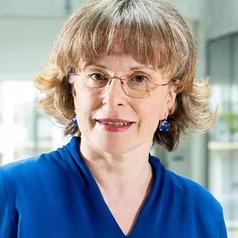
Mara Cameran
Researcher in financial accounting, Bocconi University
Tenured Researcher of Accounting at Bocconi University, Italy. Italian CPA (Dottore Commercialista) and Chartered Auditor (Revisore contabile). Member of the Standard Setting Boards’ Nominations Committee to manage the selection process for members of the International Auditing and Assurance Standards Board (IAASB) and the International Ethics Standards Board for Accountants (IESBA).
Her research interest is focused on the regulation and the functioning of the audit market and on the developing of the auditing process inside teams. She is also interested in the ethical and equality dimensions related to the accounting profession.
Less ![]()
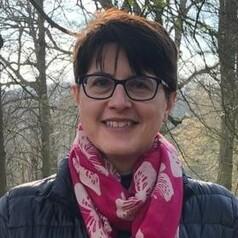
Mara Violato
Associate Professor, Health Economics, University of Oxford
Mara is an Associate Professor at the Health Economics Research Centre in the University of Oxford. She holds a BSc (Hons) in Economics from Ca’ Foscari University of Venice, Italy; an MSc in Economics from the University of Glasgow; a PhD in Economics from the University of Dundee; and a Doctorate in Economics from the University Milano-Bicocca, Italy.
Mara’s research contributes to two complementary aspects of the health economics discipline. The first aspect relates to investigations of economic-driven inequalities in health outcomes and healthcare utilisation, through the statistical and econometric analysis of large and complex observational survey data and linked healthcare administrative datasets, in order to inform clinical practice and wider policies to reduce inequitable differences in people’s health status. The second aspect refers to the economic evaluations (for example, cost-effectiveness analysis) of health treatments/healthcare delivery models alongside randomised controlled trials (RCTs) in order to identify those treatments/programmes that represent good value for money in a healthcare system which increasingly is under financial strain. The development of a more equitable and efficient healthcare sector is therefore an important perspective that underpins all of her economic research across several disease areas.
She is particularly interested in the economics of mental health, especially in children and young people, as well as the analysis of health-related quality of life in large multi-country surveys. In addition, she has recently developed an interest in behavioural economics. She is currently engaged in several projects in these areas, which are funded by the UK National Institute for Health and Care Research and the EuroQol Foundation.
Less ![]()
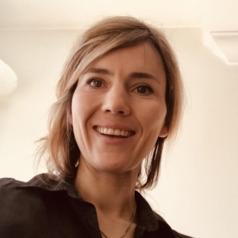
Mara-Daria Cojocaru
Privatdozentin, Munich School of Philosophy
Mara-Daria Cojocaru's main research interests include: political philosophy and theory, philosophical pragmatism, (animal) ethics, philosophy of emotion and intellectual virtues.
She has taught at the Ludwig-Maximilians-University Munich, the Munich School of Philosophy, the Friedrich-Schiller-University Jena and Graz University, and she has been visiting scholar at the University of Sheffield, the University of Brighton and the University of Veterinary Medicine Vienna. Currently, she is establishing a new project on “animal-assisted philosophy” – a blend of philosophical and creative writing that is not just about, but with and for other animals.
Less ![]()
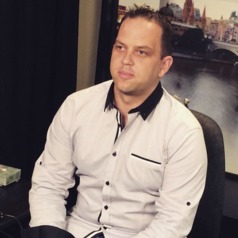
Marc C-Scott
Marc C-Scott is a lecturer in screen media and coordinator for both the Bachelor of Screen Media at Victoria University (https://www.vu.edu.au/courses/bachelor-of-screen-media-absn).
Prior to his position, Marc taught at many institutions in the areas of digital media, video production, motion graphics, visual effects, web technologies along with project and research methodologies.
He has been active in the area of digital media since 1996, completing a Bachelor of Design (Multimedia) with Honors at Swinburne’s National School of Design in 2004.
Marc is currently completing a PhD, which uses a historical comparative approach, in investigating the changes of the television industries within Australia, United Kingdom and United States.
His research interests are within television (history, institutions and new broadcast methods), cross-media, cross-platform media and the use of new digital media services.
Less ![]()
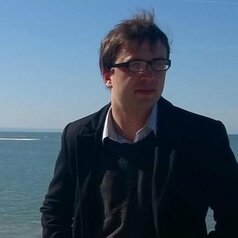
Marc Collinson
Teaching Associate in Political History, Bangor University
Dr Marc Collinson teaches contemporary history and politics. An active political historian of post-war Britain, Marc is interested in electoral phenomena (including by-elections), political parties, and policymaking. He is currently writing a study of Smethwick in electoral politics, c. 1955-1970. He is a Fellow of the Higher Education Academy and an Associate Fellow of the Royal Historical Society.
Less ![]()
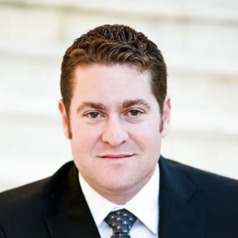
Marc Edelman
Professor of Law, Baruch College, CUNY
Marc Edelman is a tenured Professor of Law at the Zicklin School of Business, Baruch College, City University of New York, where he specializes in sports law, antitrust law, intellectual property law, and gaming / fantasy sports law. He has published upwards of 70 law review articles, including articles in Boston College Law Review, Florida Law Review, George Mason Law Review, Indiana Law Journal, Illinois Law Review and Washington & Lee Law Review.
In addition to his full-time role as a law professor, Professor Edelman is the founder of Edelman Law, where he provides legal consulting and expert witness services to businesses in the commercial sports, entertainment and online gaming industries. Some of Professor Edelman’s recent clients include a Major League Baseball team, the Arena Football League Players Union, and several online fantasy sports providers.
Professor Edelman is regularly cited by the media on a wide range of topics including how the Sherman Act applies to professional sports leagues, how gaming laws apply to fantasy sports contests, and how both labor laws and antitrust laws apply within the college sports industry.
A magna cum laude graduate of the University of Pennsylvania’s Wharton School and a cum laude graduate of Michigan Law School, Professor Edelman began his professional career by practicing antitrust and sports law with the law firm Skadden, Arps, Slate, Meagher and Flom LLP. Thereafter, Professor Edelman has practiced both litigation and transactional law in the sports and intellectual property practice groups of Dewey Ballantine LLP.
Less ![]()
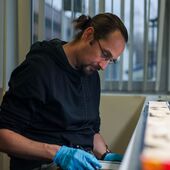
Marc Humblet
Associate Professor, Department of Earth and Environmental Sciences, Nagoya University
Less ![]()
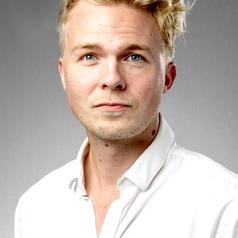
Marc Hye-Knudsen
Cognition and Behavior Lab, Aarhus University
Research areas:
Cultural forms of expression: humour, jokes, storytelling
Culture and cognition: biocultural studies
Film theory: cognitive film theory
Text theory and analysis: cognitive literary studies, evolutionary literary studies
Video genres: comedy
Less ![]()
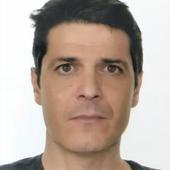
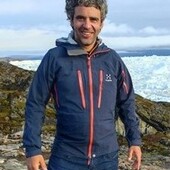
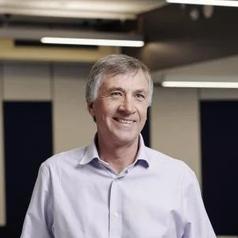
Marc Olynyk
Director of Financial Planning, Deakin Business School, Deakin University
Marc is a Senior Lecturer in Financial Planning and Course Director of Financial Planning in the Department of Accounting within Deakin University.
Marc has significant experience within both academia and industry in the areas of financial planning, superannuation and retirement planning and accounting.
He was an Authorised Representative for over 15 years and has more than 20 years of experience as one of Australia’s leading academics and educators in the financial planning discipline where he has played a key role in the development, growth and recognition of financial planning within both the university sector and the financial planning profession.
He is Program Director of Financial Planning at Deakin University and plays a key role in facilitating industry engagement and strengthening the ties between the university sector and industry.
Marc has published a number of articles in the areas of financial planning, superannuation and financial literacy.
Marc is a founding committee member and currently Chair of the Financial Planning Education Council (FPEC), is on the TEQSA Register of External Experts in Financial Planning and Financial Services and is regularly called upon to undertake course reviews and accreditation's.
He is also a co-author of one of Australia’s leading textbooks in financial planning.
Marc is a Fellow of the Chartered Accountants of Australia and New Zealand and a member of the Financial Advice Association Australia .
Less ![]()
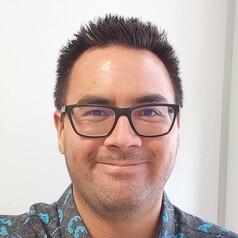
Marc Tadaki
Social scientist, Cawthron Institute
Marc is human geographer interested in the social construction of science and the framing of environmental issues in policy and governance.
Less ![]()
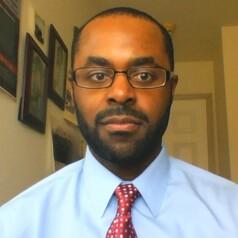
Marc Arsell Robinson
Assistant Professor of History, California State University, San Bernardino
Dr. Marc Arsell Robinson is Assistant Professor of African American history at California State University, San Bernardino. In 2022, he won the Mellon Emerging Faculty Leader Award, and served as Visiting Fellow in Equity, Justice, and Inclusion at the University of Oregon’s Clark Honors College. Dr. Robinson’s research focuses on the Civil Rights and Black Power Movements in the Pacific Northwest. His forthcoming monograph, Washington State Rising: Black Power on Campus in the Pacific Northwest will be published in August 2023 as part of the Black Power Series of New York University Press. His previous publications include journal articles in the Pacific Northwest Quarterly, and in California History. He has also contributed numerous essays and book reviews in platforms such as Blackpast.org, The Western Journal of Black Studies, Reference Services Review, The Journal of Black Studies, The Journal of African American History, and Race in American Television: Voices and Visions That Shaped a Nation.
Less ![]()
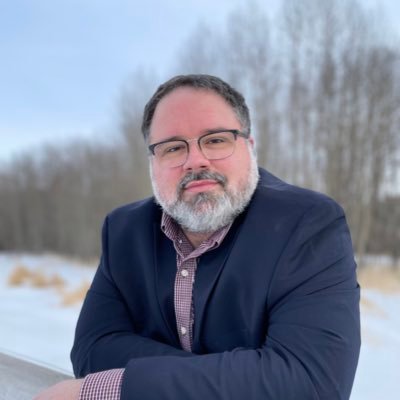
Marc D. Froese
Professor of Political Science and Founding Director, International Studies Program, Burman University
Professor Froese has expertise in the integration dynamics of economic law, the relationship between regional and multilateral economic governance, and the political economy of Canadian public policy formation. He is the author of books and articles on these and other issues, including Canada at the WTO (UTP, 2010) and Sovereign Rules and the Politics of International Economic Law (Routledge 2018). His most recent book is Has Populism Won? The War on Liberal Democracy (ECW 2022, with Daniel Drache). Research papers and some published work is available on the Social Science Research Network at http://ssrn.com/author=887299
Less ![]()
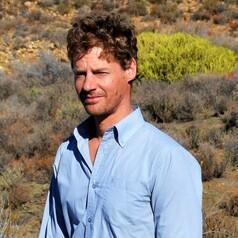
Marc Johan Van den Brandt
Postdoctoral Research Fellow at the Evolutionary Studies Institute (ESI), University of the Witwatersrand, Johannesburg., University of the Witwatersrand
PhD (Palaeontology), MSc (Palaeontology), BSc Honours (Palaeontology) - University of the Witwatersrand
Bcom Honours (Information Systems), BCom - Rhodes University
Less ![]()
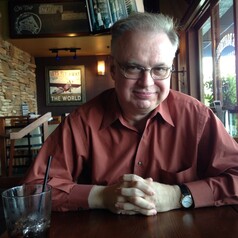
Marc S. Mentzer
Professor of Human Resources and Organizational Behaviour, University of Saskatchewan
Marc Mentzer holds the position of Professor of Human Resources and Organizational Behaviour in the Edwards School of Business of the University of Saskatchewan. He holds an MBA from McGill University and a PhD in Management from Indiana University.
Marc's research has appeared in over 20 journal articles. His research has centred on business history and the regulatory aspects of human resource management.
Less ![]()
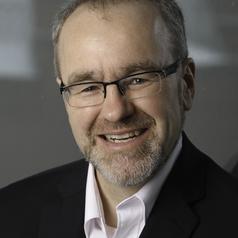
Marc-Andre Pigeon
Assistant Professor, Johnson Shoyama Graduate School of Public Policy, University of Saskatchewan
I completed my doctorate degree in Philosophy, Mass Communications, at Carleton University in 2008. At the time, I was employed full time as a policy analyst / advisor in the Library of Parliament working for finance and fiscal-policy related related committees :
- Senate Banking
- House of Commons Finance Committee
- House of Commons Public Accounts Committee).
I subsequently worked for the Department of Finance on consumer issues and later still, joined the Canadian Credit Union Association as their lead policy advisor / analyst. While I have taught as a sessional lecturer, my formal academic career only really began this fall, in 2018.
Prior to working for government, I worked at a fiscal policy think tank in the United States (Levy Economics Institute) and prior to that, was a bond and stock market reporter for Bloomberg Business News. In addition to my PhD, I have a masters' degree in economics.
Less ![]()
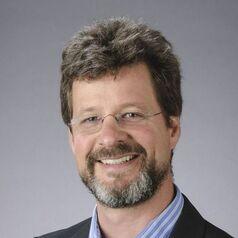
Marc-Andreas Muendler
Professor of Economics, University of California, San Diego
Marc-Andreas Muendler is Professor in the Economics Department at the University of California, San Diego, where he is starting up the Globalization and Prosperity Lab. He is a Research Professor at the ifo Institute Munich, Germany, a Guest Professor at the University of St. Gallen, Switzerland, and a Research Associate at the National Bureau of Economic Research in Cambridge, Massachusetts. Muendler has published in leading economic journals on the origins of globalization and its consequences for local industries and labor markets, firm dynamics and entrepreneurship, and information economics. Muendler's research revolves around local impacts of global markets.
Less ![]()
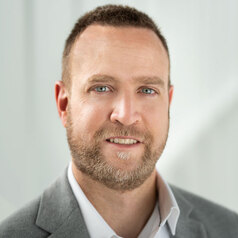
Marc-Antonin Hennebert
Professor of Human Resources Management, HEC Montréal
Marc-Antonin Hennebert is full Professor at the Department of Human Resources Management and associate researcher at the Interuniversity Research Centre on Globalization and Work (CRIMT) and the International Observatory on the Societal Impacts of Artificial Intelligence and Digital Technologies (OBVIA). He holds a PhD from University of Montreal (Canada). His research focusses on industrial relations, trade unionism, collective bargaining and social dialogue which he studies at both a national and an international level.
Less ![]()
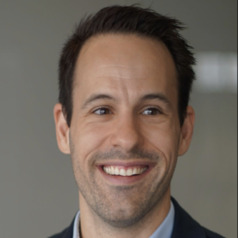
Marc-Olivier Dubé
Physiothérapeute, Chercheur postdoctoral en réadaptation, Université Laval
Marc-Olivier Dubé est physiothérapeute et a obtenu un Doctorat en sciences cliniques et biomédicales de l'Université Laval en 2023. Il est maintenant chercheur postdoctoral au La Trobe Sport and Exercise Medicine Research Centre (LASEM) à Melbourne en Australie. Il a reçu une bourse des Fonds de recherche du Québec en santé (FRQ-S). Ses recherches antérieures ont porté sur la prise en charge de la douleur persistante à l'épaule et sur la façon dont les facteurs psychologiques et contextuels propres au patient, tels que l'auto-efficacité face à la douleur et les attentes quant à l'efficacité de l'intervention, peuvent influencer les résultats. Au LASEM, il participe actuellement à des projets visant à réduire le fardeau de l'arthrose post-traumatique du genou.
Marc-Olivier a une expérience clinique préalable en tant que physiothérapeute travaillant dans une clinique privée avec des personnes souffrant de divers troubles musculo-squelettiques, ainsi que de commotions cérébrales. Il a également participé à l'enseignement dans le cadre du programme de physiothérapie de l'Université Laval (Canada). En 2023, Marc-Olivier a reçu le prix Engagement du Réseau provincial de recherche en adaptation-réadaptation du Québec (REPAR) pour souligner sa contribution au développement de la recherche en adaptation-réadaptation, ainsi que son implication et son engagement au sein du réseau de recherche.
Less ![]()
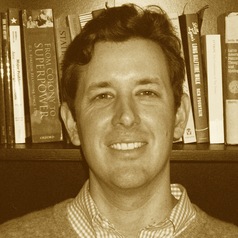
Marc-William Palen
Dr. Marc-William Palen is a historian at the University of Exeter. He is the author of The 'Conspiracy' of Free Trade: The Anglo-American Struggle Over Empire and Economic Globalization, 1846-1896 (Cambridge University Press, 2016). His commentary on historical and contemporary global affairs has appeared in the New York Times, the Australian, the Globalist Magazine, the History News Network, History & Policy, Foreign Policy in Focus, Common Dreams, Not Even Past, and the ABC, among others. He edits the Imperial & Global Forum, the blog of Exeter's Centre for Imperial & Global History. Follow him on Twitter @MWPalen
Less ![]()
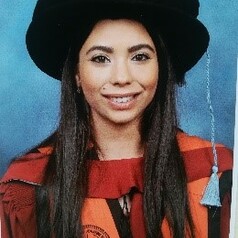
Marcel Nagar
Senior Postdoctoral Research Fellow, University of Johannesburg
Dr Marcel Nagar is a Senior Postdoctoral Research Fellow at the NRF SARChI Chair: African Diplomacy and Foreign Policy at the University of Johannesburg where she obtained her doctoral degree in Political Science in 2019. Her research interests include African Politics, South African Politics, South African Public Policy and Administration, International Political Economy, and the broader debates surrounding the Democratic Developmental State. She is the author of The Road to Democratic Development Statehood: The Cases of Ethiopia, Mauritius, and Rwanda. (New York: Palgrave Macmillan, 2021).
Less ![]()
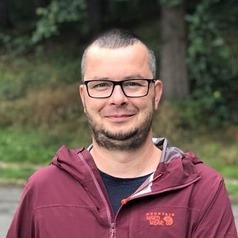
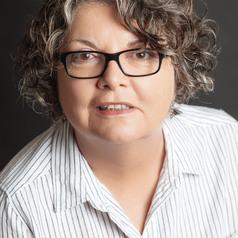
Marcella Polain
Senior Lecturer, School of Arts and Humanities, Edith Cowan University
Dr Marcella Polain was born in Singapore and migrated to Australia aged two, with her Irish father and Armenian mother. She has a background in theatre and film, and has published six books (four poetry collections; two novels), lyric essays, and other essays on writing. Her work has won or been short-listed for a number of prizes, including the Anne Elder Award and a Commonwealth Writers' Prize, and has been published internationally and in translation. In 2015, she was awarded a Gold Medal by the Writers' Association of Armenia.
Marcella is currently Senior Lecturer in Creative and Professional Writing at Edith Cowan University, Perth, Western Australia. There, with visual artist Paul Uhlmann, she co-founded 'fold editions', dedicated to the production of hand-made books. Marcella has been poetry editor for Blue Dog, Westerly and, most recently, co-editor for Australian Poetry 11. She has also edited numerous manuscripts and mentored emerging writers, many to publication - work she particularly enjoys.
Marcella has a special interest in challenging boundaries of form, and in cultural displacement, hybridity and in-betweenness. At present, she is developing a braided illness memoir exploring ongoing effects of genocide and the impact of the 2023 ethnic cleansing of Indigenous Armenians from Artsakh (Nagarno-Karabkh).
Less ![]()
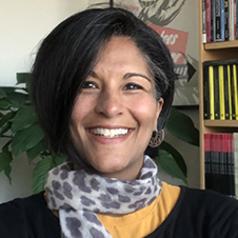
Marcelle Dawson
Associate Professor of Sociology, Gender Studies and Criminology, University of Otago
My research platform comprises four interrelated themes, namely Social Movements and Popular Protest; Identities; Alternative Futures and Decolonial Studies. In general, I am interested in researching and teaching about social transformation, and I have a particular interest in alternatives to capitalism.
Less ![]()
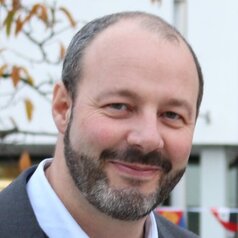
Marcello Bertotti
Reader in Community Health, University of East London
Marcello is a reader in community health at the Institute for Connected Communities. His main role is to develop research in public health, from securing funding to conducting research and publishing its results, primarily in peer reviewed academic journals.
He has 15 years work experience in research and evaluation of community health interventions, social enterprise, asset based approaches to health, and social prescribing. It has used a range of methodologies and approaches to evaluation including realist evaluation, social network analysis, asset mapping and used approaches to systematic reviews including meta-narrative and systematic mapping to study health interventions and communities. He is a co-founder of the social prescribing network and of the social prescribing youth network. He also co-delivers an accredited Level 3 certificate in social prescribing.
Marcello supervises PhD students working in the areas of health inequalities. He would welcome supervising doctoral research looking at alternative approaches to promoting health and well-being as well as the economic and social determinants of health and mental health.
Less ![]()
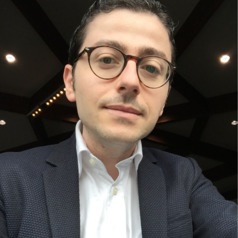
Marcello Russo
Full Professor of Organizational Behavior and Director of the Global MBA, Università di Bologna
Marcello Russo (PhD) is the global MBA director at Bologna Business School in Italy and Full Professor of Organizational Behavior at the University of Bologna, Italy. He is an expert on work-life balance, with a focus on what individual strategies and organizational factors can help individuals accomplish their ideal model of work-life balance and it has published in leading scholarly journals, including Harvard Business Review, MIT Sloan Management Review, Journal of Management, Academy of Management Annals. In this last years, he has conducted many research trying to help individuals juggling their work and personal roles and supporting companies in outlining effective policies and a supportive organizational culture that could help people pursuit their ideal model for managing the work-life interface
Less ![]()
- Market Data


















